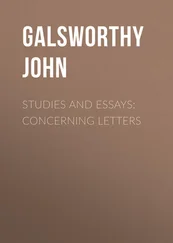John Donne - Letters to Severall Persons of Honour
Здесь есть возможность читать онлайн «John Donne - Letters to Severall Persons of Honour» — ознакомительный отрывок электронной книги совершенно бесплатно, а после прочтения отрывка купить полную версию. В некоторых случаях можно слушать аудио, скачать через торрент в формате fb2 и присутствует краткое содержание. Жанр: foreign_antique, foreign_prose, на английском языке. Описание произведения, (предисловие) а так же отзывы посетителей доступны на портале библиотеки ЛибКат.
- Название:Letters to Severall Persons of Honour
- Автор:
- Жанр:
- Год:неизвестен
- ISBN:нет данных
- Рейтинг книги:4 / 5. Голосов: 1
-
Избранное:Добавить в избранное
- Отзывы:
-
Ваша оценка:
- 80
- 1
- 2
- 3
- 4
- 5
Letters to Severall Persons of Honour: краткое содержание, описание и аннотация
Предлагаем к чтению аннотацию, описание, краткое содержание или предисловие (зависит от того, что написал сам автор книги «Letters to Severall Persons of Honour»). Если вы не нашли необходимую информацию о книге — напишите в комментариях, мы постараемся отыскать её.
Letters to Severall Persons of Honour — читать онлайн ознакомительный отрывок
Ниже представлен текст книги, разбитый по страницам. Система сохранения места последней прочитанной страницы, позволяет с удобством читать онлайн бесплатно книгу «Letters to Severall Persons of Honour», без необходимости каждый раз заново искать на чём Вы остановились. Поставьте закладку, и сможете в любой момент перейти на страницу, на которой закончили чтение.
Интервал:
Закладка:
Your affectionate servant
J. Donne.
[xv.]
Madame,
Though there be much merit, in the favour your brother hath done me in a visit, yet that which doth enrich and perfect it, is, that he brought you with him; which he doth, as well by letting me see how you do, as by giving me occasions, and leave to talk with you by this Letter: if you have any servant, which wishes you better then I, it must be because he is able to put his wishes into a better frame, and expresse them better, and understand proportion, and greatnesse better then I. I am willing to confesse my impotencie; which is, that I know no wish good enough for you; if any doe, my advantage is, that I can exceed his, by adding mine to it. You must not think that I begin to think thus, when you begin to hear it, by a Letter; As sometimes by the changing of the winde, you begin to hear a Trumpet, which sounded long before you heard it; so are these thoughts of you familiar and ordinary in me, though they have seldome the help of this conveyance to your knowledge: I am loth to leave; for as long as in any fashion, I can have your brother and you here, you make my house a kinde of Dorvey [Dorney]; but since I cannot stay you here, I will come thither to you; which I do, by wrapping up in this paper, the heart of
Your most affectionate servant
J. Donne.
[xvi.]
SIR ,
It is an ease to your friends abroad, that you are more a man of businesse then heretofore; for now it were an injury to trouble you with a busie Letter. But by the same reason I were inexcusable if I should not write at all, since the lesse, the more acceptable; therefore, Sir, though I have no more to say, but to renew the obligations I have towards you, and to continue my place in your love, I would not forbear to tell you so. If I shall also tell you, that when this place affords any thing worth your hearing, I will be your relator, I think I take so long a day, as you would forget the debt, it appears yet to be so barren. Howsoever with every commodity, I shall say something, though it be but a descant upon this plain song, that I am
Your affectionate servant
J. Donne.
[xvii.]
SIR ,
I Am not weary of writing; it is the course but durable garment of my love; but I am weary of wanting you. I have a minde like those bodies, which have hot Livers, and cold stomachs; or such a distemper as travelled me at Paris ; a Fever, and dysentery: in which that which is physick to one infirmity, nourishes the other. So I abhor nothing more then sadnesse, except the ordinary remedy, change of company. I can allow my self to be Animal sociale , appliable to my company, but not gregale , to herd my self in every troup. It is not perfectly true which a very subtil, yet very deep wit Averroes says, that all mankinde hath but one soul, which informes and rules us all, as one Intelligence doth the firmament and all the Starres in it; as though a particular body were too little an organ for a soul to play upon. And it is as imperfect which is taught by that religion wch is most accommodate to sense (I dare not say to reason (though it have appearance of that too) because none may doubt but that that religion is certainly best, which is reasonablest) That all mankinde hath one protecting Angel; all Christians one other, all English one other, all of one Corporation and every civill coagulation or society one other; and every man one other. Though both these opinions expresse a truth; which is, that mankinde hath very stronge bounds to cohabit and concurre in other then mountains and hills during his life. First, common, and mutuall necessity of one another; and therefore naturally in our defence and subventions we first flie to our selves; next, to that which is likest, other men. Then, naturall and inborn charity, beginning at home, which perswades us to give, that we may receive: And legall charity, which makes us also forgive. Then an ingraffing in one another, and growing together by a custome of society: and last of all, strict friendship, in which band men were so presumed to be coupled, that our Confessor King had a law, that if a man be killed, the murderer shall pay a sum felago suo , which the interpreters call, fide ligato, et comite vitæ . All these bands I willingly receive, for no man is lesse of himself then I: nor any man enough of himself. To be so, is all one with omnipotence. And it is well marked, that in the holy Book, wheresoever they have rendered Almighty, the word is Self-sufficient. I think sometimes that the having a family should remove me farre from the curse of Væ soli . But in so strict obligation of Parent, or Husband, or Master, (and perchance it is so in the last degree of friendship) where all are made one, I am not the lesse alone, for being in the midst of them. Therefore this oleum lætitiæ , this balme, of our lives, this alacrity which dignifies even our service to God, this gallant enemy of dejection and sadnesse, (for which and wickednesse the Italian allows but one word, Triste : And in full condemnation whereof it was prophesied of our blessed Saviour, Non erit tristis , in his conversation) must be sought and preserved diligently. And since it grows without us, we must be sure to gather it from the right tree. They which place this alacrity only in a good conscience, deal somewhat too roundly with us, for when we aske the way, they shew us the town afar off: Will a Physitian consulted for health and strength, bid you have good sinews and equall temper? It is true, that this conscience is the resultance of all other particular actions; it is our triumph and banquet in the haven; but I would come towards that also, (as Mariners say) with a merry winde. Our nature is Meteorique, we respect (because we partake so) both earth and heaven, for as our bodies glorified shall be capable of spirituall joy, so our souls demerged into those bodies, are allowed to partake earthly pleasure. Our soul is not sent hither, only to go back again: we have some errand to do here: nor is it sent into prison, because it comes innocent: and he which sent it, is just. As we may not kill our selves, so we may not bury our selves: which is done or endangered in a dull Monastique sadnesse, which is so much worse then jolity (for upon that word I durst – And certainly despair is infinitely worse, then presumption: both because this is an excesse of love, that of fear; and because this is up, that down the hill; easier, and more stumbling. Heaven is expressed by singing, hell by weeping. And though our blessed Saviour be never noted to have laughed, yet his continuance [countenance] is said ever to be smiling. And that even moderate mirth of heart, and face, and [is] all I wish to my self; and perswade you to keep. This alacrity is not had by a general charity and equanimity to all mankinde, for that is to seek fruit in a wildernesse: nor from a singular friend, for that is to ketch it out of your own pocket: but the various and abundant grace of it, is good company. In which no rank, no number, no quality, but ill, and such a degree of that as may corrupt and poyson the good, is exempt. For in nearer then them, your friend, and somewhat nearer then he, in your self you must allow some inordinatenesse of affections and passions. For it is not true that they are not natural, but stormes and tempests of our bloud and humours: for they are naturall, but sickly. And as the Indian priests expressed an excellent charity, by building Hospitalls and providing chirurgery for birds and beasts lamed by mischance, or age, or labour: so must we, not cut off, but cure these affections, which are the bestiall part.
Читать дальшеИнтервал:
Закладка:
Похожие книги на «Letters to Severall Persons of Honour»
Представляем Вашему вниманию похожие книги на «Letters to Severall Persons of Honour» списком для выбора. Мы отобрали схожую по названию и смыслу литературу в надежде предоставить читателям больше вариантов отыскать новые, интересные, ещё непрочитанные произведения.
Обсуждение, отзывы о книге «Letters to Severall Persons of Honour» и просто собственные мнения читателей. Оставьте ваши комментарии, напишите, что Вы думаете о произведении, его смысле или главных героях. Укажите что конкретно понравилось, а что нет, и почему Вы так считаете.












